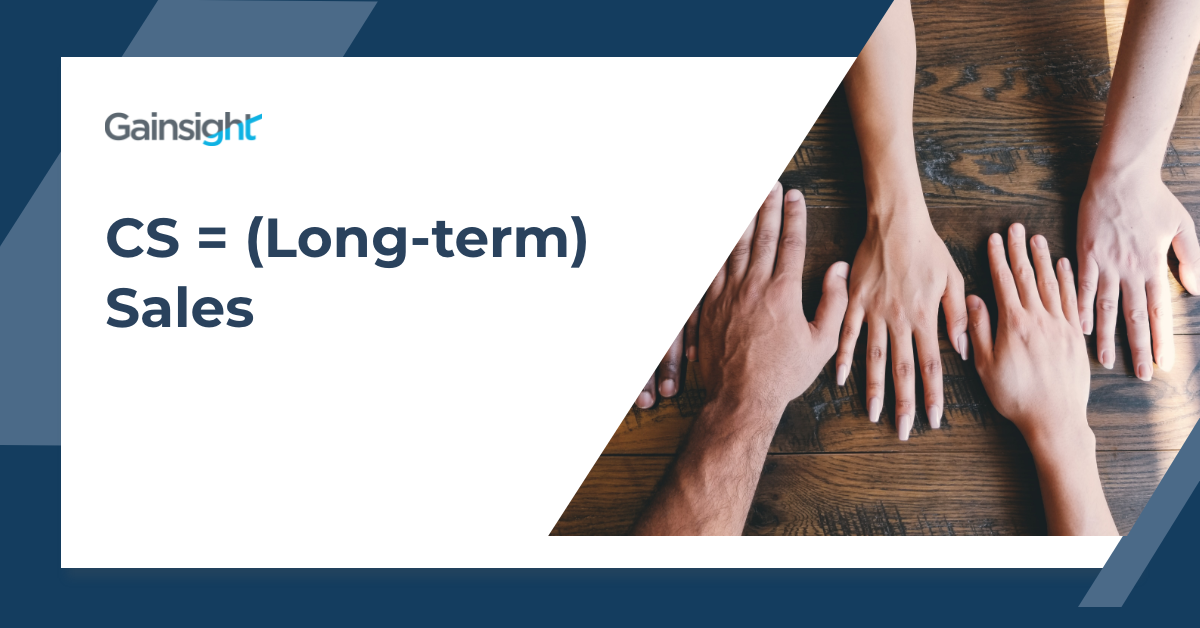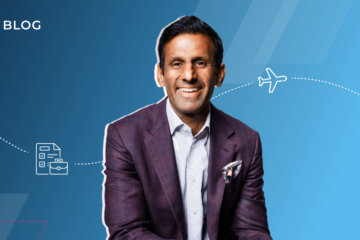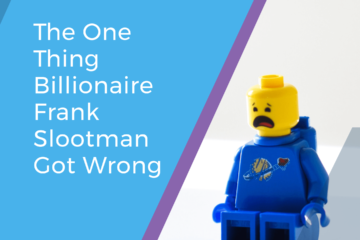

According to Wikipedia, a “false dichotomy” is:
a type of informal, correlative-based fallacy in which a statement falsely claims or assumes an “either/or” situation, when in fact there is at least one additional logically valid option
Examples include:
- “You’re either with us or against us” (seems like there are more options…)
- “Everything is nature or nurture” (science says there are other factors)
- “Red wine or white?” (why not both?)
In the CS world, the equivalent is “should we focus on Customer Success or Sales?” False dichotomy!
In the Beginning…
Let’s go back to the beginning. In the beginning, there was Sales. Well, maybe some other stuff was before that, but Sales goes back a long way. The model worked well. The vendor sold a customer a product. The customer paid their money upfront. It was the customer’s job to use it and get value. And if they had issues, they called the vendor for “technical support.” By the way, it was tough for them to switch.
The SaaS business model ended the party. Customers were no longer stuck. They paid as they went. If they weren’t getting value, they could leave. Vendors quickly realized their new SaaS clients weren’t as in love with them as they might have thought. As such, they created Customer Success teams out of an urgent need. They needed to make sure clients were adopting the products and getting value to stay. The truth is, many early Customer Success teams were created to plug the proverbial “leaky bucket.”
Over time, the charter of Customer Success teams became two-fold:
- Drive desired outcomes and experiences for clients
- Drive clients to renew, expand and advocate
The False Dichotomy in SaaS
And this is where the false dichotomy comes up. In Customer Success discussions—whether at the Pulse conference or online forums— they are often presented in contrast to Sales:
- “Should we invest in Customer Success or Sales?”
- “Companies focus too much on Sales and not enough on Customer Success.”
- “We have to make sure our Customer Success people don’t turn into Salespeople.”
These concerns come from an understandable place. Because companies invested so little in the post-sale customer journey and focused more on the transactional phases (acquisition and renewal), there was a need to shift energy toward the new Customer Success function.
But I have two problems with this line of thinking:
- It’s a bit pejorative to Sales, which is a really complex and critical role. Sales has lived and died as the most measurable and accountable role in almost every company.
- More importantly, it misses the reality that Customer Success actually drives Sales.
Customer Success = Time-shifted Sales
The reality is that the concept of Customer Success recognizes that clients make decisions on whether to renew or churn software long before the renewal date. And many times, when you try to “drive the renewal” 90 or 60 days before the expiration, it’s too little, too late.
Customer Success involves investing time upfront–in onboarding, early adoption, and value realization—to drive the Sale (Renewal, Upsell, etc.) later on. It’s about patient selling. It is not transactional—but then again, neither is good Sales work. Customer Success is simply investing the time earlier in the client’s journey, so you get the payoff later.
Customer Success Requires Sales Skills
In addition, if you break down the skills of the best Sales professionals, you’ll find attributes like:
- Curiosity
- Business acumen
- Relationship building
- Outcomes driven
- Managing multiple stakeholders
- A challenger mindset
- Patience
- Persistence
Don’t those sound like great skills for CSMs too?
CSMs and Salespeople aren’t opposites. They aren’t enemies. They aren’t rivals. They are in a relay race, going toward the same goal, working on different time horizons.



